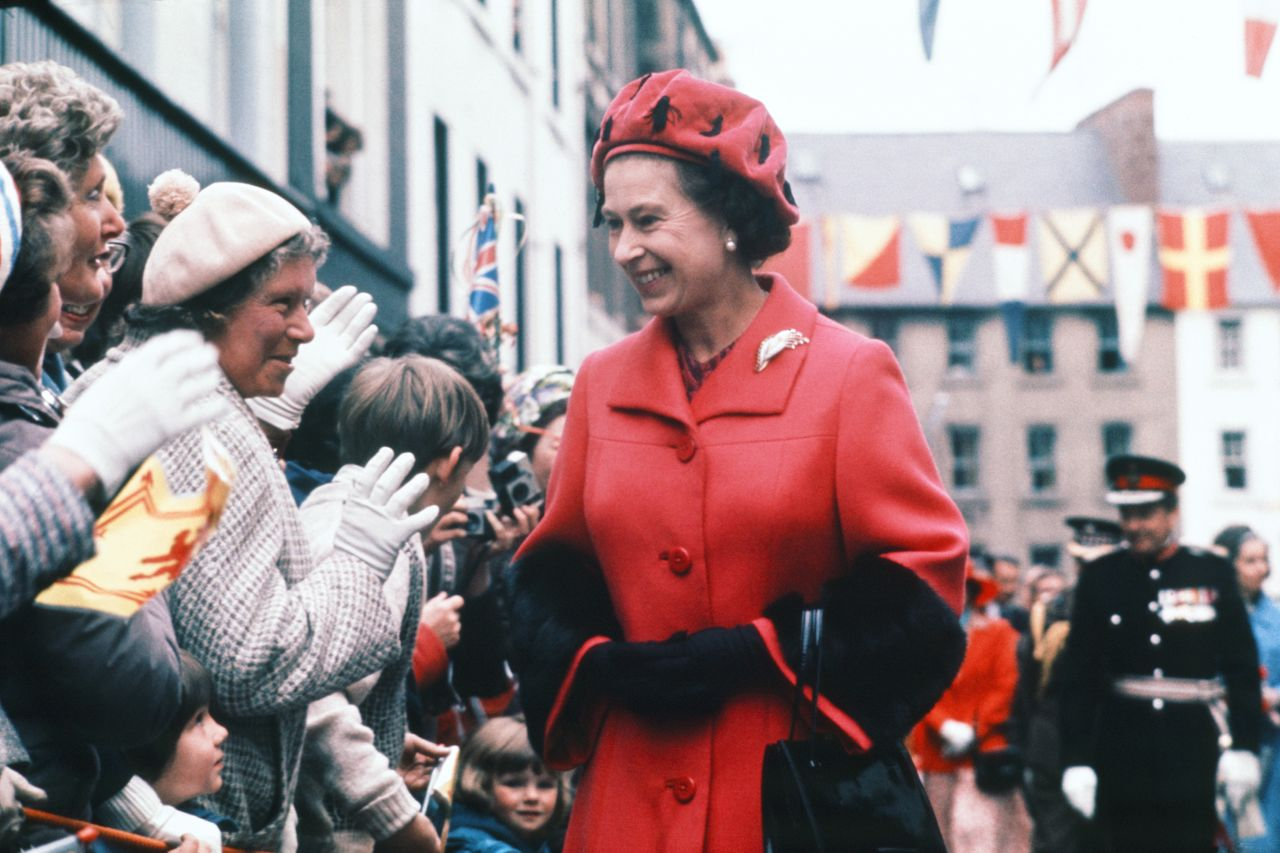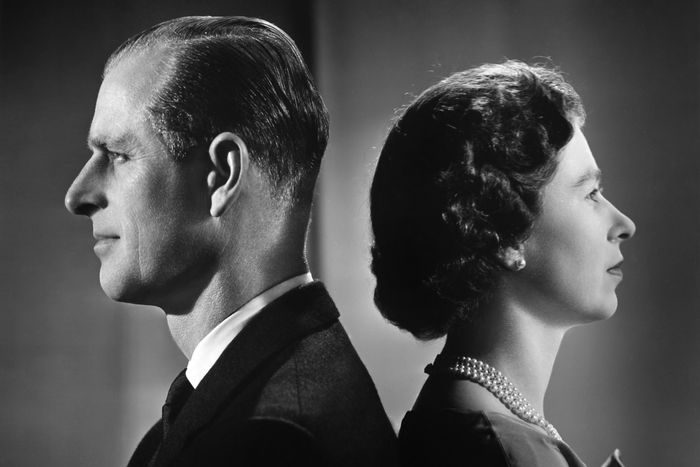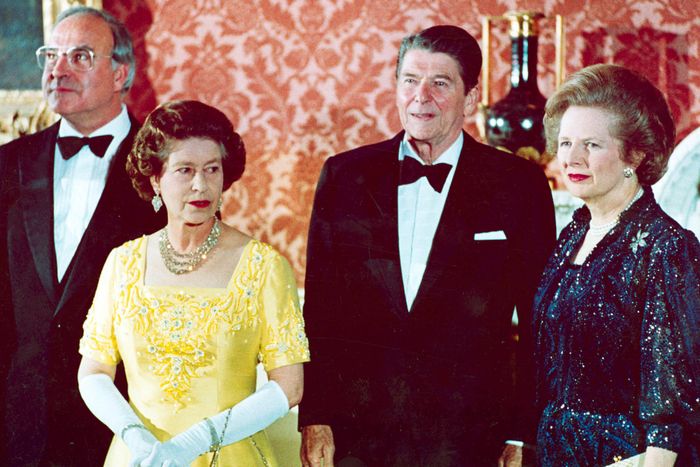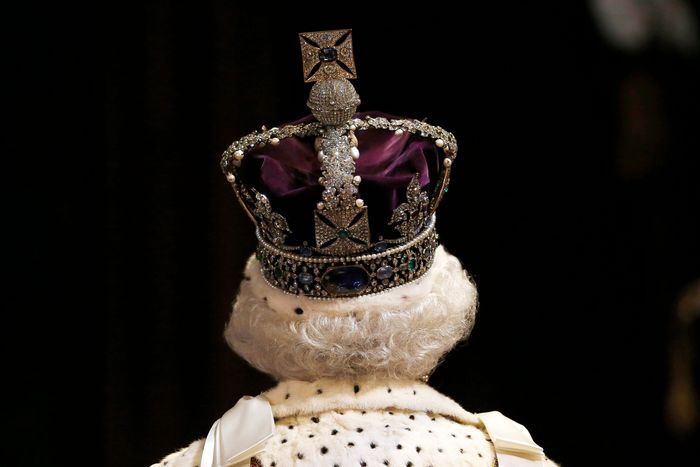
Mr. Roberts is the author, most recently, of "The Last King of America: The Misunderstood Reign of George III" and a royal commentator for NBC News.
We British like to believe that we have the virtues of duty, decency, good humor and tolerance as part of our national DNA. There might be some self-delusion in this, and it is certainly not always true, but it is a strong part of our self-defining myth as a people. Of one Briton, however, it genuinely was true, and for 70 years we have known that because of her virtues we would always be proud of her wherever she went -- and thus proud of our country too. She was a fine lifelong role model for millions in Britain, the Commonwealth and around the world.
The complete certainty that -- whatever the rest of her family might say or do -- Her Majesty The Queen would never embarrass us on the world stage, but would always perform her duties with the utmost professionalism and unflappable calm, made her the soft-power equivalent of an aircraft carrier when it came to international relations. However much our other national institutions might let us down, we always knew that The Queen would never put a step out of place or say a single word that would make us cringe.

In the full glare of the global media for seven decades, meeting hundreds of thousands of people one-on-one and untold millions in public events, traveling to over a hundred countries of the world, dealing with delicate diplomatic incidents that today are history but at the time could have produced strife, advising 15 prime ministers from Winston Churchill to Liz Truss, she knew just what to do. It seems almost superhuman; it was certainly the absolute acme of professionalism. Would to God that more of our leaders in public life had a fraction of her grace, her gravitas and, above all, her common sense.
The Queen had an uncanny knack for encapsulating in a phrase what the rest of us think but rarely quite put into words, or at least rarely have the opportunity to say to the right person at the right time. "Why did no one see it coming?" she asked Mervyn King, the Governor of the Bank of England, about the 2008 Great Crash. "Why would anyone want the job?" she asked Boris Johnson when he became prime minister during the Brexit maelstrom. Then there was the sixth sense she had for what her people were feeling. When they were hurting financially during the Great Crash, she canceled her birthday party at the Ritz. And of course there was her choice of the apposite phrase. "Grief is the price we pay for love," she said in the aftermath of 9/11, encapsulating precisely what the West was feeling.
Remember those words as we watch the long line of mourning Britons and her subjects from 15 countries across the globe next week, stretching from her catafalque in Westminster Hall. I strongly suspect that it will go down the Thames all the way to the City of London financial district in the east of the capital, as they pay their respects at her lying-in-state. They will come from across the four kingdoms and from around the world; they will wait patiently in line for very many hours on end; they will doggedly put up with the rain and cold winds all night; they will josh with the coppers and stay cheerful; they will bring their children and grandchildren who will one day be able to tell their own children and grandchildren that they paid their last respects to Queen Elizabeth II, Elizabeth the Good.

Everyone would have perfectly understood if Her Majesty had decided to appoint Liz Truss as prime minister by a Zoom call. She had missed the Braemar Highland Games and had been suffering ill health, and a personal meeting wasn't strictly constitutionally necessary. As we now know -- and as she herself might well have suspected -- she only had two more days to live. But anyone who thought that she would put her personal comfort before what she saw as her duty doesn't understand the character of The Queen, the last of the Greatest Generation. When she was shot at six times as she rode down the Mall at the Trooping of the Colour in 1981, she didn't know the assailant was firing blanks, but she carried on the parade regardless. That is the kind of raw courage we took for granted from her.
Britain has undergone several extremely difficult moments over the past 70 years as it has been transformed in almost every conceivable way. The Suez Crisis, only four years into the Queen's reign, forced us to come to terms with the loss of the largest empire in world history over the course of only a decade or so, yet we never responded to the imperial humiliation in the way that France did in Algeria, let alone the way Putin is doing in Ukraine. The 1970s saw the serious danger of Britain slipping into the position of a third-rank power, and the tough-love medicine that Margaret Thatcher imposed to reverse that trajectory in the 1980s led to violent strikes and riots, yet not to worse. The issue of race hatred is thankfully largely behind Britons now, but we must never forget that it occasionally caused civil unrest. The refusal of much of the Establishment to accept the result of the Brexit referendum toxified British politics for half a decade. British history since 1952 hasn't been plain sailing.
Yet the knowledge that at the apex of our political system, our constitutional structure, our armed forces, our Commonwealth, our legal system and our national church stood a lady of irreproachable morals, who moreover confined her political involvement to advising, encouraging and warning but never to partisan politics, has exercised an inestimably positive influence on our public life. Liz Truss wasn't exaggerating when she perceptively said that the Queen was "the rock upon which modern Britain was built."
Although she was a small "c" conservative in many aspects of life, as many nonagenarians naturally are, The Queen was always exemplary in the way that she never interfered in politics, and Sir Keir Starmer's public statement showed that the Labour Party admired her just as much as the large-c Conservatives. In a country that is being riven by extreme partisan politics at the moment, as Britons face a post-Covid future and inflationary spirals, admiration for her was one of the few things that united both frontbenches in parliament. Now even that has gone.
More than a century separated the births of The Queen's first prime minister, Winston Churchill, and her last, Liz Truss. Even more extraordinary, the 96 years of her life constitutes 39% of the existence of the United States as an independent country. Her love of the United States -- her only incognito holidays were taken in Kentucky -- was instrumental in keeping our most important alliance, the Special Relationship, as fresh as it is profound. We have only just begun to note the number of ways we are going to miss her, on both the international and the domestic stages.
A millennium-old monarchy is a book of many chapters. One unusually long and glorious chapter has closed, and a new one is now opening. If Britain today seems somewhat untethered, mournful of course but also apprehensive, it is because King Charles III has almost impossibly large boots to fill. Yet he has been waiting for 70 of his 73 years for the role to devolve upon him and is therefore supremely ready for it. There is something immensely spiritually right that a role such as this is assumed during a period of mourning. Politicians take power feeling like they have won the lottery; monarchs accede to thrones mournful at the death of their parent. Succession at a time of somber reflection rather than exultant triumph is part of the genius of constitutional monarchy.

We as a nation made The Queen do things that we would never, ever, even consider doing ourselves. We expected her to do her job to the age of 96, when we retire at 65, and to keep doing it up to two days before her death. We expected her to invite bloodthirsty dictators to stay in her home, because British foreign policy interests required it. We expected her, aged 86, to stand on a boat in the Thames in the freezing rain during the diamond jubilee, waving for hour after hour. We expected her to shake the hand of a former IRA gunmen who approved the murder of her husband's uncle. We expected her to smile and charm and shake hands cordially, whatever she might privately have been feeling inside about her family's all-too-public traumas.
She did all of it, and in 70 years she never once complained. She was the best of us.
Comments